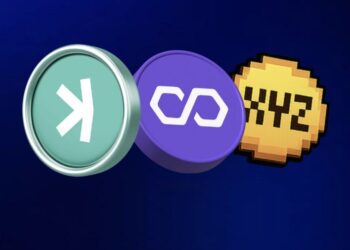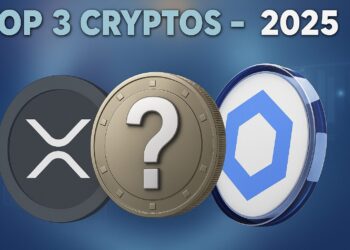1. Qubetics: Bridging Blockchain Ecosystems
The blockchain ecosystem is fragmented, with networks operating in isolation, limiting cross-chain transactions and seamless data exchange. Qubetics is tackling this challenge by positioning itself as a Web3-aggregated chain, unifying multiple networks into a cohesive framework.
Qubetics enhances interoperability by enabling:
- Seamless Asset Transfers: Allowing users to move assets across different networks effortlessly.
- Data Sharing: Promoting collaboration between blockchains by enabling secure and efficient data exchange.
- Cross-Chain Functionality: Simplifying the development of decentralized applications (dApps) that leverage multiple blockchains.
This interoperability unlocks the full potential of decentralized technologies, creating a unified ecosystem for developers, enterprises, and users.
Currently in Presale Phase 9, Qubetics has raised over $2.5 million, selling more than 190 million $TICS tokens to over 2900 holders. Priced at $0.023 per token, early investors stand to benefit as the next presale phase increases the price by 10%, with the final phase seeing a 20% hike. After the presale, $TICS is expected to reach $0.25, offering an ROI of 986.95%. This makes Qubetics an attractive opportunity for those looking to invest in the future of blockchain interoperability.
2. Polygon: Scaling Ethereum
Polygon has emerged as the go-to solution for scaling Ethereum, addressing its speed and transaction cost limitations. By providing a layer-2 framework, Polygon enhances Ethereum’s performance without compromising security or decentralization.
The platform has become a favourite among developers for building scalable dApps, from DeFi and gaming to NFTs. With its compatibility with Ethereum’s ecosystem, Polygon continues to drive mass adoption by making blockchain applications more accessible and efficient.
3. Toncoin: Blockchain Meets Messaging
Toncoin, developed by Telegram’s creators, bridges blockchain technology with the messaging giant’s vast user base. Integrating Toncoin into Telegram enables the platform to enable peer-to-peer transactions, decentralized applications, and more within a familiar interface.
This seamless integration of blockchain with messaging can potentially onboard millions of users into the decentralized ecosystem, making Toncoin a unique player in the blockchain space.
4. AAVE: Transforming DeFi
AAVE is a decentralized finance (DeFi) trailblazer. It enables users to lend, borrow, and earn interest on cryptocurrency assets without intermediaries. Its innovative liquidity pool model allows secure and efficient transactions, empowering users to access financial services that were previously inaccessible.
AAVE’s governance token enables its community to drive protocol upgrades, ensuring that the platform evolves to meet users’ needs. As DeFi grows, AAVE remains a cornerstone of this transformative financial movement.
5. Ripple: Redefining Global Payments
Ripple revolutionizes cross-border payments with its blockchain-based solutions. Using XRP, Ripple provides fast, low-cost, and secure international transactions, making it a favourite for financial institutions.
Ripple enables businesses and individuals to move money across borders effortlessly by addressing inefficiencies in the traditional banking system. Its growing list of partnerships with major banks underscores its potential as a key player in the global payments industry.
6. Ethereum: The Foundation of Decentralized Applications
Ethereum remains the leader in smart contract innovation, laying the foundation for decentralized applications (dApps). Since its launch in 2015, Ethereum has fostered the development of entire industries, from DeFi to NFTs.
The recent transition to Ethereum 2.0, which introduced proof-of-stake (PoS), has significantly improved the network’s scalability, energy efficiency, and transaction speed, ensuring its continued dominance in the blockchain space.
7. Cardano: A Scientific Approach to Blockchain
Cardano distinguishes itself with its scientific, research-driven approach to blockchain development. Built on the Ouroboros proof-of-stake protocol, Cardano prioritizes sustainability, security, and scalability.
With the Alonzo upgrade introducing smart contract functionality, Cardano has become a strong competitor in the DeFi and NFT spaces. Its rigorous, peer-reviewed development process ensures a robust platform for developers and enterprises.
8. Polkadot: Connecting Blockchains
Polkadot, developed by Ethereum co-founder Gavin Wood, is a blockchain designed to connect multiple blockchains. Its relay chain enables seamless communication between parachains and independent blockchains, which have their own governance and use cases.
This architecture promotes scalability and interoperability, making Polkadot a vital platform for projects requiring cross-chain functionality. Its innovative design fosters collaboration across blockchain ecosystems, driving the next wave of decentralized innovation.
9. Solana: Speed and Cost Efficiency
Solana has gained widespread attention for its unmatched transaction speed and low costs. Capable of processing up to 65,000 transactions per second (TPS), Solana is ideal for high-performance applications, including DeFi, gaming, and NFTs.
Its hybrid proof-of-stake and proof-of-history consensus mechanism ensures scalability without sacrificing security, making it one of the fastest-growing platforms in the blockchain industry.
10. Avalanche: Building Custom Blockchains
Avalanche is a highly scalable blockchain platform that allows developers to create custom blockchains, or subnets, tailored to specific applications. Its Avalanche Consensus Protocol ensures near-instant transaction finality, making it a favourite for enterprise use cases and DeFi applications.
With its focus on flexibility and compatibility with Ethereum, Avalanche has become a preferred choice for developers seeking scalable and efficient blockchain solutions.
Final Thoughts
The blockchain ecosystem is evolving rapidly, with platforms like Qubetics, Polygon, Toncoin, AAVE, Ripple, Ethereum, Cardano, Polkadot, Solana, and Avalanche driving innovation and adoption.
Qubetics stands out for its focus on interoperability, addressing one of the biggest challenges in the blockchain space. Platforms like Polygon and Solana solve scalability issues, while Ripple and AAVE revolutionize finance. Ethereum and Cardano remain foundational, and Polkadot and Avalanche excel in cross-chain and custom blockchain solutions.
These platforms offer developers, enterprises, and investors unparalleled opportunities to participate in the future of decentralized technology.
For More Information:
- Qubetics: https://qubetics.com
- Telegram: https://t.me/qubetics
- Twitter: https://x.com/qubetics
Disclaimer
This is a sponsored post. The information provided in this article is for informational purposes only and does not constitute financial advice. DeFi Planet does not endorse or recommend any specific investment decisions and reminds readers to conduct their own research and due diligence before taking any financial actions. Digital assets are highly volatile and can lose some or all of their value. DeFi Planet is not responsible, directly or indirectly, for any damage or loss caused or alleged to be caused by or in connection with the use of or reliance on any content, goods or services mentioned in the article.
If you want to read more articles like this, visit DeFi Planet and follow us on Twitter, LinkedIn, Facebook, Instagram, and CoinMarketCap Community.
“Take control of your crypto portfolio with MARKETS PRO, DeFi Planet’s suite of analytics tools.”




















